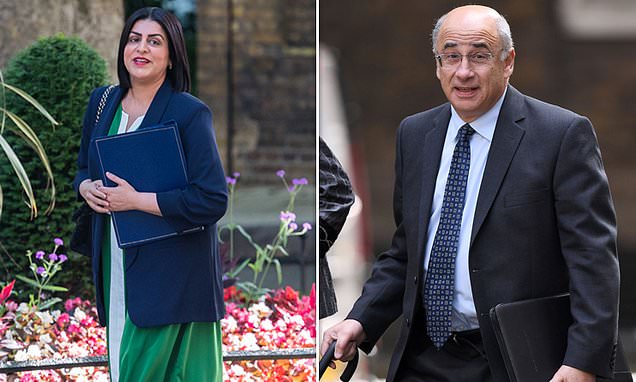Imagine committing theft, doing drugs, or disturbing the peace—and walking away with just a warning, no courtroom, and not even a criminal record.
That’s the kind of shift being proposed in a sweeping overhaul of the UK’s justice system.
A new government-backed review led by former High Court judge Sir Brian Leveson is pushing for major reforms aimed at easing the growing crisis in the courts and prisons.
But not everyone is on board.
Letting Offenders Off the Hook?
According to details leaked to the Daily Mail, Leveson’s recommendations include routine use of “out of court resolutions” for what he terms “low-tier” crimes.
This category covers offences like minor theft, drug use, and non-violent public disturbances.
These cases would no longer automatically head to court. Instead, offenders might get off with a simple warning, a fine, or perhaps a rehabilitation course—if that.
Critics worry this approach sends the wrong message.
As one lawyer put it bluntly, “This will give a green light to shoplift and do drugs.”
And it’s not hard to see why—some of these measures wouldn’t even result in a criminal record.
Bigger Discounts for Guilty Pleas
Another controversial proposal involves increasing the sentence reduction for those who plead guilty early.
Currently, offenders get a one-third discount.
Leveson wants that bumped up to 40%.
Combined with recent changes that allow criminals to serve only a third of their sentence behind bars, this could mean someone sentenced to 10 years might walk free in less than two.
Add in possible early releases through tagging schemes, and that time behind bars could shrink even more—possibly to just two years for a decade-long sentence.
Fewer Jury Trials on the Horizon?
Leveson’s report is also expected to recommend scaling back the use of jury trials in certain cases.
Complex fraud charges and mid-level crimes like causing actual bodily harm could be handled by special “intermediate” courts made up of magistrates and a judge, bypassing the traditional jury system altogether.
This, he argues, could save time and help clear the court backlog.
But for many, removing jury trials raises questions about fairness, transparency, and the right to be judged by one’s peers.
The Courts Are Drowning in Delays
Justice Secretary Shabana Mahmood is currently facing massive pressure as the justice system continues to buckle under a record-breaking backlog.
Following the COVID-19 pandemic, delays in court proceedings have skyrocketed, with the number of pending cases topping 73,000 last year. Some victims are now waiting years for their day in court.
In light of this crisis, Leveson’s review suggests that increasing the number of days Crown Courts sit—from the current level to 130,000 annually—would be a necessary part of the solution.
But even he admits this would be expensive and difficult to achieve, costing tens of millions of pounds each year.
Out-of-Court Justice: A Quiet Deal Behind Closed Doors?
Out-of-court settlements might sound efficient, but many worry they’re simply too quiet.
The Magistrates’ Association has expressed concern over the lack of transparency involved in these types of resolutions.
Unlike formal trials, these decisions happen without public scrutiny.
Critics argue that for justice to maintain legitimacy, it has to be seen to be done—not quietly resolved behind closed doors.
Out-of-court options range from fixed fines and cautions to rehabilitation classes, and in some cases, just a verbal apology.
It’s a far cry from the traditional court process that many people still associate with real justice.
Is the Government Serious About Real Reform?
The report, which will officially be released on Wednesday, doesn’t shy away from the big picture.
Leveson is calling for more investment, more courtroom hours, and more resources if these changes are to have any real impact.
The Ministry of Justice has acknowledged that delays are a major issue, stating, “Justice delayed is justice denied.”
There’s some hope that a recent £450 million boost from Chancellor Rachel Reeves’s spending review might help, but it’s not yet clear how that money will be allocated.
So, What Happens Next?
With the official release of Sir Brian’s report just days away, public reaction—and political fallout—is expected to be intense.
Will this be seen as a bold step toward modernising the justice system?
Or as a dangerous shortcut that prioritises convenience over accountability?
The Justice Secretary now has to walk a tightrope—balancing the urgent need to fix delays with the public’s demand for firm and fair justice.
One thing is certain: these proposals are about to stir up a serious national conversation.

